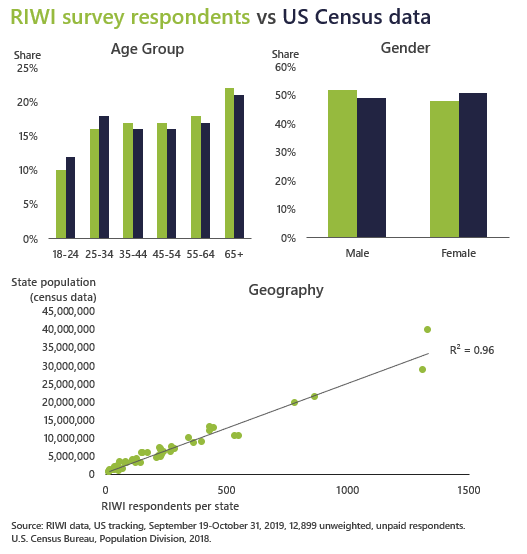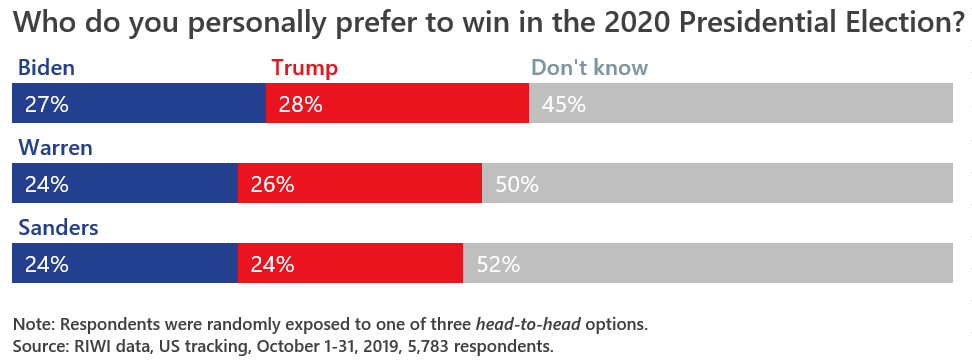By: Emily Kuzan
The method that predicted the 2016 US Presidential Election is back for 2020.
In 2016, most polls missed President Donald Trump’s win but RIWI predicted a win for the President in the Electoral College, as well as highlighting that Secretary Hillary Clinton would win the popular vote by 2%.
With the 2020 Presidential Election a year away, we introduce our new election tracker. The tracker is different than traditional methods because it: (a) uses RIWI-powered technology that accurately predicted the 2016 Presidential Election; (b) it is continuous and in real-time; (c) it reflects both engaged and politically disengaged populations, in contrast to traditional polls which typically capture engaged, often paid, populations; and (d) it reflects views anonymously, reducing social desirability bias.
Expect to see monthly updates on which party Americans think will win the Presidential Election, who Americans personally prefer to win the Presidential Election, and a new monthly insight depending on what the data reveal.
What makes these data different?
Unlike traditional polls which sample from a narrow, highly engaged group of (mostly paid) respondents, RIWI respondents come from a broad and truly random set of the population, and go far beyond those who typically answer surveys you see mentioned on TV or in the news. RIWI does not collect any personally identifiable data and respondents are not incentivized in any way (e.g. with money or rewards), allowing respondents to provide their views freely and securely, reducing social desirability bias. RIWI accurately predicted President Trump’s 2016 election win and many other recent elections and referenda.

Unlike traditional polling which weights small predetermined quota-based samples (e.g. x% women, y% men) to match population distributions, RIWI’s unweighted survey data in this study nearly match US census data when comparing age, gender, and geographic distribution.
Which party will win in your state?
|
Regardless of whom you support, which party do you think will win your state in the 2020 Presidential election? |
||
|
Democratic Party |
Republican Party | Don’t know |
| 25% | 23% |
52% |
| Source: RIWI data, US tracking, September 19-October 29, 2019, 9,709 respondents. | ||
-
- We find that asking a crowd of people who they think will win is more accurate than tallying individual preferences
- As we get more respondents we will examine regional and state-level results
Potential head-to-head matchups
Respondents to the survey were randomly asked about their personal preference, with each third of the group being exposed to one of three possible head-to-head matchups between President Trump and one Democratic candidate (Former Vice President Joe Biden / Senator Elizabeth Warren / Senator Bernie Sanders).

